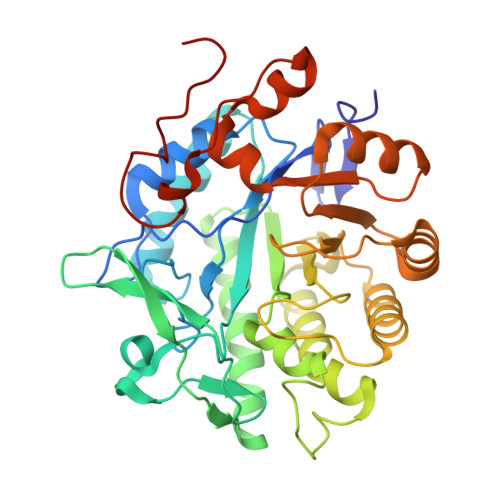Focused Directed Evolution of Pentaerythritol Tetranitrate Reductase by Using Automated Anaerobic Kinetic Screening of Site-Saturated Libraries
Hulley, M.E., Toogood, H.S., Fryszkowska, A., Mansell, D., Stephens, G.M., Gardiner, J.M., Scrutton, N.S.(2010) Chembiochem 11: 2433-2447
- PubMed: 21064170
- DOI: https://doi.org/10.1002/cbic.201000527
- Primary Citation of Related Structures:
3P62, 3P67 - PubMed Abstract:
This work describes the development of an automated robotic platform for the rapid screening of enzyme variants generated from directed evolution studies of pentraerythritol tetranitrate (PETN) reductase, a target for industrial biocatalysis. By using a 96-well format, near pure enzyme was recovered and was suitable for high throughput kinetic assays; this enabled rapid screening for improved and new activities from libraries of enzyme variants. Initial characterisation of several single site-saturation libraries targeted at active site residues of PETN reductase, are described. Two mutants (T26S and W102F) were shown to have switched in substrate enantiopreference against substrates (E)-2-aryl-1-nitropropene and α-methyl-trans-cinnamaldehyde, respectively, with an increase in ee (62 % (R) for W102F). In addition, the detection of mutants with weak activity against α,β-unsaturated carboxylic acid substrates showed progress in the expansion of the substrate range of PETN reductase. These methods can readily be adapted for rapid evolution of enzyme variants with other oxidoreductase enzymes.
Organizational Affiliation:
Faculty of Life Sciences, University of Manchester, 131 Princess Street, Manchester M1 7DN, UK.
















